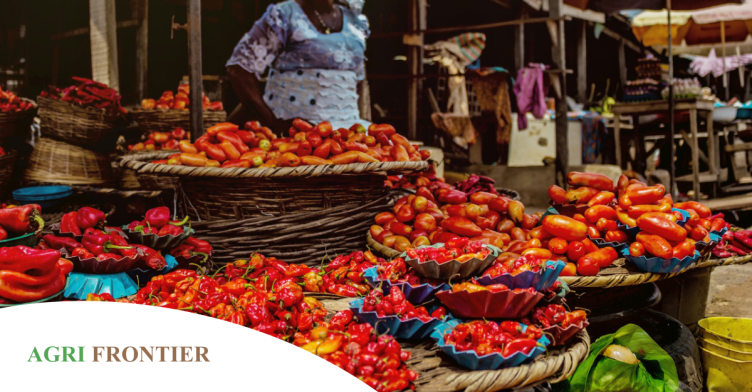Get the latest updates and learn more about Agribusiness in Africa.

19th January 23
Factors affecting food security in Africa
Everyone should have the right to safe and nutritious food in order to thrive, but this is not always the case. With the world population expected to hit 9 billion by 2050, this is an increasing issue and, critically, the divide between food security and food insecurity is widening due to a range of factors. 2.37 billion people did not have access to safe and nutritious food in 2020, and Sub-Saharan Africa is a region where this issue is chronic.
Why is this such an issue in 2022, and why does it continue to increase?
Apart from the obvious supply issues of some countries producing more food than others, there are many factors affecting food security globally. For a continent that relies so heavily on agriculture it might seem strange that it could be affected so badly.

A major issue is climate change. With temperatures increasing and many more ‘freak’ weather occurrences, it is much more difficult to predict crop consistency and sustainability, particularly for those farming marginal lands. Drought is increasingly common, and when this occurs there is less food available all over the world and global food prices increase, creating particular vulnerability amongst poorer regions.
Hand in hand with the issue of rising temperatures and drought is effective irrigation. Irrigation systems can be put in place to provide water for countries with unreliable or low rainfall, either by taking water from underground aquifers or directly from rivers. Whilst these can double crop yields, they are expensive to put in place without sufficient funding or capital. They also have environmental consequences.
Traditionally scarcity has created cost increases. However, it feels like there are so many factors now contributing to rising costs and therefore higher prices. Having spoken with growers all over the world we are finding that container ships are in the wrong places at the wrong times, labour shortages are causing delays to supply, rising energy costs are contributing towards shorter growing seasons for those growing under glass, social unrest is disrupting transport links, and policy implementation to protect farmers is often poor. In particular, the Maputo Declaration that mandates that 10% of public spending is allocated to agriculture is not always adhered to.
Land usage and availability is another factor affecting agribusiness in Africa. The growth of biofuels and selling of land for other enterprises such as solar farming mean that land for growing is scarce if more money can be made by using land for other purposes. Deforestation and over-cultivation cause eutrophication and poor quality soil for consistent crop growth, where crops are not adequately rotated and land is not maintained. Not only that, but when land is tended well, pests and diseases can destroy crops. Many people in frontier countries cannot afford pesticides and also cannot obtain them easily.
Debt repayments are difficult if farmers cannot achieve high enough prices for their food, and they are also often beholden to large loans for seeds, crops, trees and equipment. These loans cannot be paid back without adequate income.
Agri Frontier is committed to addressing the issue of food insecurity by helping people with Business Development, Feasibility Studies, Investment Opportunities, Fundraising, Commercial Due Diligence, Valuations, and Mergers and Acquisitions. We would also like to meet like-minded individuals who work in this space or who can relate to these issues. Please get in touch with us if you would like to join the conversation.
